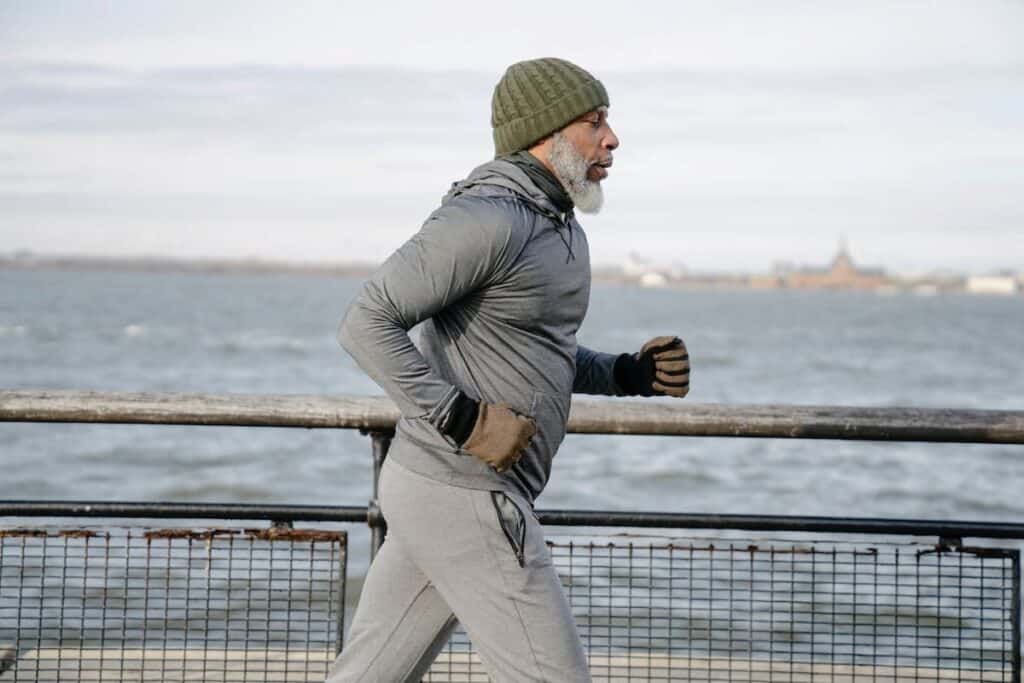In today?s news, we will look into the three-year study that monitored over 7000 middle-aged and older Canadians to uncover well-being characteristics as we age. Additionally, according to a recent research study, group exercise programs improved sleep quality, physical strength and flexibility, balance, and coordination in older persons. Meanwhile, the UN is celebrating Universal Health Coverage Day on Monday alongside the FIFA World Cup semi-finals. On the eve of Argentina vs. Croatia, the FIFA Fan Festival in Doha, Qatar, is hosting a Health for All exhibition.
Table of Contents
ToggleStudy identifies elements associated with well-being as people age
Original Source: Study identifies factors linked to well-being as people age
How do you age well? A three-year study monitored over 7000 middle-aged and older Canadians to uncover well-being characteristics as we age.
They discovered that women, married, physically active, and not obese, who had never smoked, higher salaries, and no sleeplessness, heart disease, or arthritis were more likely to maintain excellent health throughout the research and less likely to acquire crippling cognitive, physical, or emotional disorders.
The researchers chose healthy volunteers for the three-year trial. This includes the lack of memory issues, persistent crippling pain, major mental illness, physical limitations that impede daily activities, appropriate social support, and high happiness and life satisfaction.
“Over 70% of our group maintained outstanding health throughout the trial, which astonished and delighted us. Our findings emphasize the need of strength-based rather than deficit-based aging and older adult care. Media and studies focus on concerns rather than positives.”
Mabel Ho, first author, PhD candidate at the University of Toronto’s Factor-Inwentash Faculty of Social Work (FIFSW) and Institute of Life Course and Aging.
Based on respondents’ ages at study start, effective aging prevalence varied. Three quarters of respondents aged 55 to 64 at the start of the study were healthy throughout. Half of 80-year-olds were healthy.
“Half of 80-year-olds maintained this high level of cognitive, physical, and emotional well-being throughout the research. This is great news for older persons and their families who may expect rapid decline for 80-year-olds “Mabel Ho. By understanding effective aging variables, we may engage with older persons, families, practitioners, governments, and researchers to build a lively and healthy later life.
Obese older folks were less healthy. Normal-weight older adults aged 24% better than obese ones.
“Our findings are in keeping with other studies which have found that obesity was related to a range of physical symptoms and cognitive problems and that physical activity also plays a key role in optimal aging,” says co-author David Burnes, Associate Professor at the University of Toronto’s FIFSW and Canada Research Chair in Older Adult Mistreatment Prevention. These findings emphasize the necessity of a healthy weight and active lifestyle throughout life.
Income mattered. Half of those below the poverty level aged well, compared to three-quarters of those above.
“Low income may create stress and limit healthy choices like optimal diet, but our study does not explain why. This association needs additional study “says senior author Esme Fuller-Thomson, Director of the Institute for Life Course & Aging and Professor at the University of Toronto’s Factor-Inwentash Faculty of Social Work.
Lifestyle influences later life health. Compared to smokers, older persons who never smoked were 46% healthier. Quitting smoking in later life improved survival, pulmonary function, quality of life, coronary events, and respiratory symptoms. Former smokers performed as well as non-smokers, proving that it’s never too late to quit.
Physical activity was also revealed to be important for later life health. Moderate to intense physical activity made older persons 35%?45% more likely to age healthily.
Sleep-problem-free baseline respondents were 29% more likely to maintain excellent health throughout the trial.
“Aging requires adequate sleep. Sleep issues damage brain, body, and mind. Insomnia sufferers benefit from cognitive-behavioral therapy for insomnia (CBT-I) “Esme Fuller-Thomson.
International Journal of Environmental Research and Public Health released the paper online. It examines optimal aging parameters from the Canadian Longitudinal Study on Aging (CLSA) baseline wave (2011-2015) and first follow-up wave (2015-2018). 7,651 CLSA wave 2 respondents aged 60 or older were in excellent health at baseline. Only 45% of respondents were in great health at baseline, limiting the sample.
Benefits of group exercise for older adults’ physical and mental well-being
Original source: Group Exercise Boosts Physical and Mental Health for Older Adults
Exercise is Stephen Ball’s career. He founded the University of Missouri’s “Stay Strong Stay Healthy” strength training program in 2005, reaching over 20,000 older adults.
Ball has long heard about the eight-week strength training program’s physical and mental health benefits for older folks. Now he has scientific confirmation.
According to a recent study, persons over 60 who participated in the group exercise program had improved muscle strength and flexibility, balance and coordination, sleep quality, and self-confidence to enhance physical activity and reduce the chance of falling and expensive medical expenditures.
?This program exemplifies what MU is all about as a land-grant university,? said Ball, MU School of Health Professions professor and MU Extension Missouri state fitness expert.
?We provide undergraduates valuable hands-on experience in teaching exercise, do life-changing research in the lab, and then through our collaborations through MU Extension, we go out in rural communities and execute the research to improve the health of everyday Missourians.?
Ball and Missouri Orthopedic Institute studied the “Stay Strong Stay Healthy” group strength training program for persons over 60. Squats and bicep curls are taught in the one-hour, twice-a-week instructor-led classes.
The study indicated that participants improved their physical health and self-confidence in their abilities to exercise, which boosted their daily physical activity and reduced the chance of falls, a major issue for older persons.
?We help older folks preserve their independence and reduce their chance of falling, which has tremendous financial and health implications,? Ball added.
?Participants tell us that in addition to feeling stronger, healthier, and more active, another significant reason they love the group programs is the social side of making friends with others their age and engaging with community members in a stress-free environment.?
Ball received a 2012 MU William T. Kemper Fellowship for undergraduate teaching and extension. Ball said the Missouri Department of Health and Senior Services has certified the “Stay Strong Stay Healthy” strength training program for state-wide implementation after more than a dozen peer-reviewed studies showed its usefulness since 2005.
Missouri Extension teachers and MU-trained facilitators in Oklahoma, Tennessee, Kansas, North Carolina, and Nevada run the program.
Ball’s growing collection of peer-reviewed, evidence-based studies on the program’s physical and mental health benefits may help it get national recognition as an evidence-based falls prevention program.
?I have heard from individuals that the program saved their life,? Ball said.
?MU undergraduate students help teach classes, graduate students help with research, and our MU Extension regional staff administer the program across the state servicing all 114 counties in Missouri, so it is a real team effort achieving all three purposes of a land grant university.?
UN and World Cup celebrate Universal Health Coverage Day
Original source: World Cup joins team UN to kick-off Universal Health Coverage Day
Be Active: Bring the Moves for Health For All, coordinated by FIFA, the World Health Organization (WHO), the Education Above All Foundation (EAAF), and Qatar’s Ministry of Public Health, features dance, music, and football stars.
Education Above All’s global Scoring 4 The Goals Campaign promotes the UN Sustainable Development Goals during the event (SDGs).
Performing
Star players included award-winning Hollywood dancer and choreographer Sherrie Silver, singer The Mad Stuntman, the voice of global hit I Like to Move It, Move It, the theme song of the FIFA-WHO Bring The Moves physical activity campaign, and WHO Goodwill Ambassadors and football legends Didier Drogba of C?te D’Ivoire and top Brazilian goalkeeper Alisson Becker.
?I can’t wait to Bring the Moves at the FIFA Fan Festival and promote Health for All on Universal Health Coverage Day on behalf of Rwanda and the Education Above All Foundation,? said Sherrie Silver. ?Dance has brought me joy, passion, and physical and mental health.?
The festival honors health in several ways:
Promoting and accelerating worldwide access to cheap, equitable, and effective health care on UHC Day, led by WHO and global partners.
as part of the EAAF and UN-led #ScoringForTheGoals initiative.
A large dance-led workout the day before the Be Active: Bring The Moves for Health campaign launch during the 13-14 December semi-finals.
?I have been so thrilled to watch football fans Bring The Moves and dance for health to my song, I Like To Move It, throughout the World Cup,? said dancer and vocalist The Mad Stuntman.
Move!
?We can be active for health in various ways, from moving for fitness to pushing for access to care for all,? added Goodwill Ambassador Drogba. I’m pleased to support both on Doha’s Universal Health Coverage Day.?
?On Universal Health Coverage Day, let’s all be active and play our part to make health for all our goal,? said Brazil and Liverpool goalkeeper Alisson Becker, WHO Goodwill Ambassador for Health Promotion.
The UHC Day 2022 theme, Build the world we want: A healthy future for everyone, calls for stronger health systems devoted to equity, trust, healthy environments, investments, and accountability.
The Scoring 4 The Goals Campaign raises awareness and encourages action to accomplish the UN’s Sustainable Development Goals (SDGs), the global agenda for a more prosperous and equitable future.
Inflation and war, destroying healthcare
In a release marking the day, the WHO Europe Region noted that inflation and war are threatening the lives and security of millions of people, especially in Ukraine, and urged countries to learn from previous shocks and prevent out-of-pocket healthcare payments from pushing people into poverty this winter.
In a press statement, WHO urges governments to learn from the 2008 financial crisis and ?step up public spending on health and give priority to protecting the people most in need, which is now more vital than ever.?
Low-income people are more likely to have catastrophic out-of-pocket medical expenses.
Dr. Hans Kluge, WHO Regional Director for Europe, said financial difficulty can force people to choose between feeding their family, heating their home, or taking their medications. To secure health for all, governments must invest in health systems, especially during crises.
Summary of today?s physical health news
Overall, a new study tracked over 7000 middle-aged and older Canadians for three years to determine well-being characteristics as we age. They found that those who were female, married, physically active, not obese, never smoked, had higher incomes, and did not have insomnia, heart disease, or arthritis were more likely to maintain excellent health throughout the study and less likely to develop disabling cognitive, physical, or emotional problems.
Furthermore, a recent study found that persons over 60 who participated in the group exercise program had better muscle strength and flexibility, balance and coordination, sleep quality, and self-confidence to enhance physical activity and reduce the chance of falling and expensive medical expenditures.
Finally, the FIFA World Cup semi-finals and Universal Health Coverage Day are sharing the spotlight this week. FIFA, the World Health Organization (WHO), the Education Above All Foundation (EAAF), and Qatar’s Ministry of Public Health staged Be Active: Bring the Moves for Health For All, which featured dance, music, and football stars. Award-winning Hollywood dancer and choreographer Sherrie Silver, singer The Mad Stuntman, the voice of global hit I Like to Move It, Move It, the theme song of the FIFA-WHO Bring The Moves physical activity campaign, and WHO Goodwill Ambassadors and football legends Didier Drogba of C?te D’Ivoire and top Brazilian goalkeeper Alisson Becker were among the stars.








